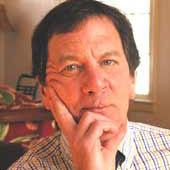South Korea — The End of Obedience
What is the real meaning of recent U.S.-South Korean differences?
February 25, 2003
With support from their neighbors, South Koreans have taken the lead since last autumn in resolving the Korean crisis. In doing so, they also assume an important role in creating the multipolar world of the future.
Remember when reports of new economic reforms began trickling out of Pyongyang last August? North Korea had already begun to decontrol wages and prices; state rationing programs were to be scrapped and private markets opened.
Diplomats in Pyongyang called these the most important economic measures the North had taken since it became a communist state in 1948. This unexpected reform drive was swiftly followed by the restart of stalled talks between Seoul and Pyongyang.
Economic aid, family reunions, and transport links between North and South — the cornerstones of the "sunshine policy" advanced by South Korean President Kim Dae Jung — were all on the table.
Road and rail projects to connect the two estranged nations were under way within a month. We should have understood the message then: The world is turning; the Cold War structure is crumbling in one of its most enduring corners.
The Bush administration had spent a year and a half attempting to scuttle Kim's attempts at reconciliation — more or less successfully. Suddenly it was clear that Washington was failing and Seoul prevailing.
Then came Japanese Prime Minister Junichiro Koizumi's summit session with North Korean leader Kim Jong Il in Pyongyang — again, history in the making.
Koizumi's one-day journey northward marked the first time Tokyo departed from Washington on a foreign policy question since the oil embargoes of the 1970s.
This was all the more dramatic for coming just as the U.S. revealed evidence of North Korea's previously secret nuclear-weapons program.
Where are we now? South Korea, Japan, China, Russia, and numerous other Pacific nations are negotiating with the North to defuse the tension prompted by its threat to pursue its nuclear programs.
Washington has reversed its earlier judgment — no contacts without disarmament first — and agreed to enter talks with Pyongyang "eventually," as Secretary of State Colin Powell put it.
But it is the larger implications that matter most. Two visions of our global future are cast in stark relief on the Korean peninsula, one tied to the past, one to the future.
One assumes that U.S. dominance and military reach remain the only realistic source of post-Cold War stability. Another looks forward to a world of multiple poles of power and favors regional solutions to regional problems.
South Korean President Roh Moo Hyun, who succeeded Kim Dae Jung on February 25, 2003, is a vigorous exponent of independence from Washington and increased regional interdependence.
So, needless to say, are those who have been demonstrating in the streets of Seoul for many months against the U.S. military presence in South Korea and Washington's overweening power on the peninsula.
For the first time since U.S. troops arrived in the early-1950s, it is now possible to contemplate their eventual departure without feeling one is dreaming.
South Koreans are admirably aware of the historic implications of the stance they have adopted. But the desire to advance beyond relationships shaped during the Cold War is not limited to East Asia. It is global.
Europeans, to take a notable example, are gradually finding their voices. Consider their resistance to a U.S. attack on Iraq, or German Chancellor Gerhard Schröder's controversial re-election campaign last autumn.
For Asians, the reinvention of longstanding ties with the United States has dimensions far beyond flashpoint diplomacy.
The economic model that sustained the Cold War order consisted of export-dependence among Asians and over-consumption on the part of Americans.
The desire to advance beyond this arrangement by developing domestic demand has become evident from South Korea through Southeast Asia over the past several years.
To put a complex point too simply, the postwar order across the Pacific resembled the hub and spokes of a bicycle wheel: But for mainland China and the Vietnamese, the primary tie was always with the United States — and links within the region were weak.
It is against this background that the impulse toward regional interdependence — political, economic, institutional, diplomatic — should be understood.
But anti-Americanism must be recognized for what it is — and is not. Whatever the rhetoric may sometimes suggest, nobody wants simply to elbow the Americans aside.
It has a lot of frontage on the Pacific lake — and East Asians like it that way. But Washington's voice is gradually becoming one among many — and even its closest friends in the region like that, too.
Viewed clearly, the Korean crisis might have prompted Americans to think again about who they are in the world and where they fit — and whether any nation can define itself alone in the era we enter upon.
That this is a forlorn prospect is partly a failure of vision and partly a failure of will. The world's gain is not America's loss. It is a pity Washington does not yet see the planet's evolution that way.
Read previous
Wahhabism Goes Global
February 24, 2003
